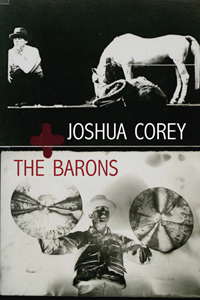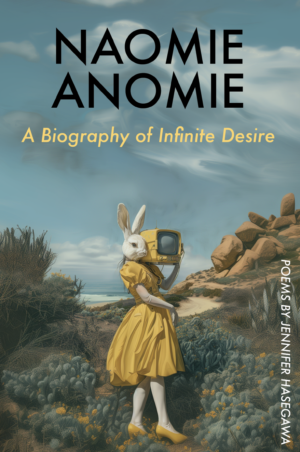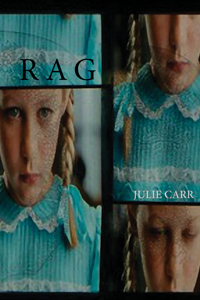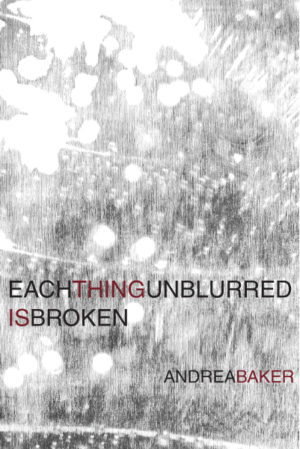Description
The poems of The Barons span ten years of struggle with the spirit of Romance in the face of world-historical catastrophe: 9/11, the wars in Iraq and Afghanistan, and the Great Recession. Once again we find ourselves in a waste land stained by spectacle, scabrous and benighted, a landscape populated by opportunists, idiots, amnesiacs, and chumps, unable to comprehend the disaster that has enfolded them. In spite of this the book is haunted by the ancient quest for reconciliation, for some kind of contact with the earth and with other people. From ironic pastoral to black satire to the gates of vision, this book enacts a twenty-first century journey toward an elusive horizon of meaning and the paradox of “freedom’s law.”
What a wild, satisfying read. Joshua Corey’s The Barons does the good, dangerous, difficult “work of open eyes” in a world as glutted, clotted, dizzying, mysterious, fugued out, maxed out, and ever shifting as wherever we are standing right now. This book will take hold of your synapses and reboot, reset. Somehow both the future and the ancient are here, all while “Dada blows its smoke into me.”
Gillian Conoley, author of Peace
Could life as we now lead it be one huge Viking funeral? In The Barons Joshua Corey makes us feel such to be the fact. A poetry that glorifies our daily defeats even as it surges with the will to resistance, Corey’s collection, informed by Rilke and Duncan and O’Hara and Hemingway (without being beholden to anyone), refuses compromise with either success or failure. Trapped in “televised beds”, on guard against the temptation “to fall in love with your own private wormhole”, this is work that doesn’t fall for pseudopublic or pseudoprivate satisfactions. Neither empty procedural poetry nor obvious lyric, The Barons and other Poems straddles “freedom’s law.”
Leonard Schwartz, author of At Element
Joshua Corey has reinvented the good old-fashioned American avant-garde epic poem (Whitman, Stein, Crane, O’Hara) and thrust it, kicking if not screaming, into the early 21st century, “rescued / by what survives the will to survive.” The result is thrilling, and unlike any poetry I know.
John Ashbery
About the Author
Reviews
Excerpt
Joshua Corey is the author of three other books of poetry, Severance Songs (Tupelo Press, 2011), Fourier Series (Spineless Books, 2005), and Selah (Barrow Street Press, 2003), as well as a novel, Beautiful Soul: An American Elegy (Spuyten Duyvil Press, 2014). With G.C. Waldrep he edited The Arcadia Project: North American Postmodern Pastoral (Ahsahta Press, 2012), an anthology of innovative contemporary nature poems. He lives in Evanston, Illinois and is an associate professor of English at Lake Forest College, where he is also co-director of Lake Forest College Press / &NOW Books.
A brief interview with Joshua Corey
(conducted by Rusty Morrison)
The Barons is an epic project! I can’t say it better than John Ashbery, in his endorsement of the book: “Joshua Corey has reinvented the good old-fashioned American avant-garde epic poem (Whitman, Stein, Crane, O’Hara) and thrust it, kicking if not screaming, into the early 21st century.” Can you speak to the scope and diversity of the project? Its history and evolution?
The Barons is a ten-year effort: I began writing the poems that eventually joined together to make this collection in 2004, not long after completing the manuscript for my last book, Severance Songs. That was a very different book, working through the possibilities of a single form, the sonnet, including that form’s Petrarchan roots in an address to the beloved and to the spiritualized dimension of erotic love. The Barons, on the other hand, is all over the place formally: there are prose poems, odes, a small epic of New York (Compostition Marble), rants, brief lyrics, you name it. I wanted it to be more of a collection than my other books, which is not to say that it lacks themes or a center of gravity. So it accreted more slowly and eccentrically than my other books. Two of its sections, Compostition Marble and Hope & Anchor were first published as chapbooks by Pavement Saw Press and Noemi Press, respectively. Some of the shorter poems represent a kind of transition out of the sonnet (I’m thinking of the “Little Land Lyrics” sequence), while others were written right up to the brink of the book’s publication (the Beuys poem). More profoundly, I feel in writing this book I have shifted my fundamental stance toward poetry: whereas before I was concerned with constructing, or trying to construct, exquisite verbal objects, I now feel that poetry has become a practice, like meditation or medicine. It is the principal spiritual, intellectual, and ethical practice of my life, and the poems have become fields of imaginative action, “try-works” (a la Moby-Dick) rather than works.
As an avid reader of your blog, I happened upon this: “There is a fierce joy to be found in life on the precipice, not in stoicism but in something closer to a Nietzschean amor fati. We all must die; all must die. Let’s be alive while we’re here. Which means a commitment to the everyday, which means resisting domination and banditry with any and every means at our disposal.” I am stealing this quote from the context in which you wrote it to say that it is this sense of fierce joy and commitment to the everyday that I find in so many of the poems in The Barons. I am thinking at this moment of the end poem SÆGLÓPUR, but I could site so many other poems in the book to reflect upon the controlled frenzy and fanatically articulate delirium that you muster forth. Or, as you say yourself, this book enacts the paradox of “freedom’s law.” Can you speak to the challenge of writing lyric poetry that is darkly euphoric and compassionately demotic?
The Barons is less optimistic but more hopeful than my other books. Optimism is a reflex, a fundamental innocence or naiveté untouched by experience or wisdom. Hope, on the other hand, is a cultivated sort of negativity, rooted in humility. The world may be coming to an end, but if I scarcely know the world, if I scarcely know myself, then I scarcely know what new possibilities are even now being born. More and more I try to write from this center of not-knowing, which is pretty damn uncomfortable, but which also restores “adventure” to poetry in the sense that Robert Duncan uses that word: “Homer / underwrites not adventure / but the way back home / before Odysseus may shed / a life’s disguise” (“Under Ground,” The Opening of the Field, 79). I am trying to be less careful, to stake more in poetry. Risk is knowledge.
There are many sources referenced in The Barons; many are quoted. Can you speak to some of these relationships? Were some of these poems’ references more intimate in relationship to you than others? Were some more difficult to bring to fruition?
In The Spirit of Romance, Ezra Pound wrote that “The study of literature is hero-worship,” which is one explanation for the habit of quotation and allusion. Elsewhere in that text he claims that “Dante is many men, and suffers as many,” as he asserts the reality of Dante’s experience: “Dante had gone living through Hell, in no visionary sense.” Nothing is more mysterious or wonderful to me than the reality, the cash value (in William James’s crass but telling phrase) of imaginative experience, which can only be fully transmitted, I think, by language—by memorable speech. And the reading and listening I have done counts for a not inconsiderable portion of my experience, so naturally the bits of speech I remember from the poems I’ve read (but also from plays, movies, novels, speeches, advertisements) wind up in the poems I write. It can work like a form of notation, as if all my poetry were a commonplace book that transforms reading to writing and back again. It can also be argument, or revision—in The Barons I quote but also quarrel with Emerson, Duncan, pretty much all of the Modernists, and even my own earlier work. But when I say something—when the “I” says something—it’s anyone, everyone speaking. Touching that centerless center of speech may be what poetry is for.
Would you tell me a bit about yourself? Anything about you that is not in the bio printed in the book, and that might give insight into your more personal relationship to this text?
I have a six-year-old daughter; despair and cynicism are unaffordable luxuries to me. But I can’t close my eyes to how shitty everything is becoming, either. I have always been attached to Pound’s apology for The Cantos: that they were marked by “the defects inherent in a record of struggle.” These poems are my record of struggle: a struggle for the hopefulness and the spirit of Romance (or reality) that I mentioned earlier, in spite of very considerable obstacles. The defects, alas, are mine as well.
Who are the authors or artists or musicians with whom you feel a kinship? Who are you currently reading, watching, hearing?
Virginia Woolf’s diary has become my constant source of witty companionship, periodically punctuated by moments of discovery and moments of despair. I love diaries and journals; I love Boswell, I’m completely under the spell, like a lot of people, of Karl Ove Knausgaard’s monumental autobiographical novel My Struggle, the third volume of which has just been published in English. Proust and Melville and Beckett are growing influences, while Joyce is becoming less of one. Henry James is the bomb. I prefer music without words, or in words I can’t understand: Mozart’s operas, Bach, Mingus, Sun Ra. I love movies from the 60s and 70s: crime movies, heist flicks, noirs. On TV I’m alternating between old episodes of The Rockford Files or A Bit of Fry and Laurie and Girls. As far as contemporary fiction goes, I’m really enjoying Rachel Kushner’s The Flamethrowers and the short stories you’ll find in NOON Annual; I also like Roberto Bolaño and Saramago and Enrique Vila-Matas. My favorite contemporary poets aren’t afraid to manifest as visionaries and mystics and extremists of language: Alice Notley and Peter O’Leary and Gabriel Gudding come to mind. Martha Ronk’s new book is wonderful.
You chose the image that is used in the cover design for this book. Of course, there is a poem cycle in the book devoted to the artist, but can you talk about your reasons for your choice? your relationship to this particular work?
I discovered the work of Joseph Beuys a few years ago when visiting Berlin and his sheer commitment to his materials—to felt and fat of course, but also to his own body, rendered fragile by its ambiguous experience as a Luftwaffe pilot in World War II—was deeply moving to me. Of course he’s known for his ecological consciousness, which manifests in his work as a kind of animism—I’m thinking of the 1965 performance How to Explain Pictures to a Dead Hare, in which Beuys, his head covered in honey and gold leaf, walks around a gallery while murmuring inaudibly to a dead rabbit that he’s cradling in his arms. There is a ritual quality to his work, and a dangerous charisma—I am perversely fascinated with figures associated with the high civilization of 20th-century Germany, a civilization of course profoundly implicated in evil. Beuys, it seems to me, represents the genuinely heroic artistic attempt to root oneself in a damaged culture, and to bear the marks of that damage—what Adorno called “damaged life.” Without exactly embracing or endorsing Beuys, I nevertheless acknowledge him as a touchstone, a point of reference.
Over and over Corey’s poems seem to ask “How can we forget?” while salvaging the materials with which to pose this question from the debris of what we call our intellectual and artistic inheritance. Timothy Donnelly’s 2010 The Cloud Corporation might be a fitting analog: the speaker is in a position of burnt-out privilege, analytic and self-implicating. While Donnelly’s lines are soaked with ketamine-like languor, Corey’s are on speed—and angry. Beneath each punch line is a barrel of acid. Though for a collection that wears its learning on its sleeve, it is, curiously, most affecting when it breaks down into howls that register Corey’s disgust with something without analyzing the reasoning behind this disgust. “Owaagh, the blurbs” may be my favorite opening line of the year.
Corey’s work exudes a richness of language throughout. I think the characters make the book ring novelistic, considering Corey’s recently published Beautiful Soul: An American Elegy. In “The Novel,” Corey writes: “No more poems, only novels. Novels are easy: you write one sentence and then a second sentence.” This sort of criticism of the paradigm is part of what makes this book work. It’s a critic’s book, and it offers couched criticism of politics, characters that Corey develops, and even, poems themselves, in a sort of tongue-in-cheek kind of way. The poems include all the right moves, too, from fragmentation to anaphora, to make them really capture the spirit of what The Barons is doing.
Corey’s The Barons offers us a rich, dense, allusive, elusive reading and writing of epic in an American key.
from Complete Adventures
II. In which we are transported
An adverb to modify is, this person thought happily from his high chair.
He spooned some yogurt. The floor of Grand Central Station was far below
him and the black grains of the commuters’ hats churned there like rice
on a tapped tin plate. Where’s my Looming Carl, this person thought, and
then remembered: but it’s my turn to loom. So this person did his level
little best, sitting up straight and shaking white glops of yogurt down on
the floor so far below, where they splatted contentedly on tiles and hatted
heads. A few squinted up but all they could see was the winter sun breaking
whitely through glass exactly at the nimbus of this person’s haircut. I’m
an emergency, this person said excitedly, waving his spoon in the air. Then
soberly: An emergency all alone. Someone skidded on something white far
below and fell down in a pewter clatter. But this person didn’t see, or else he
only heard. Heavenly hurt it gives us.




